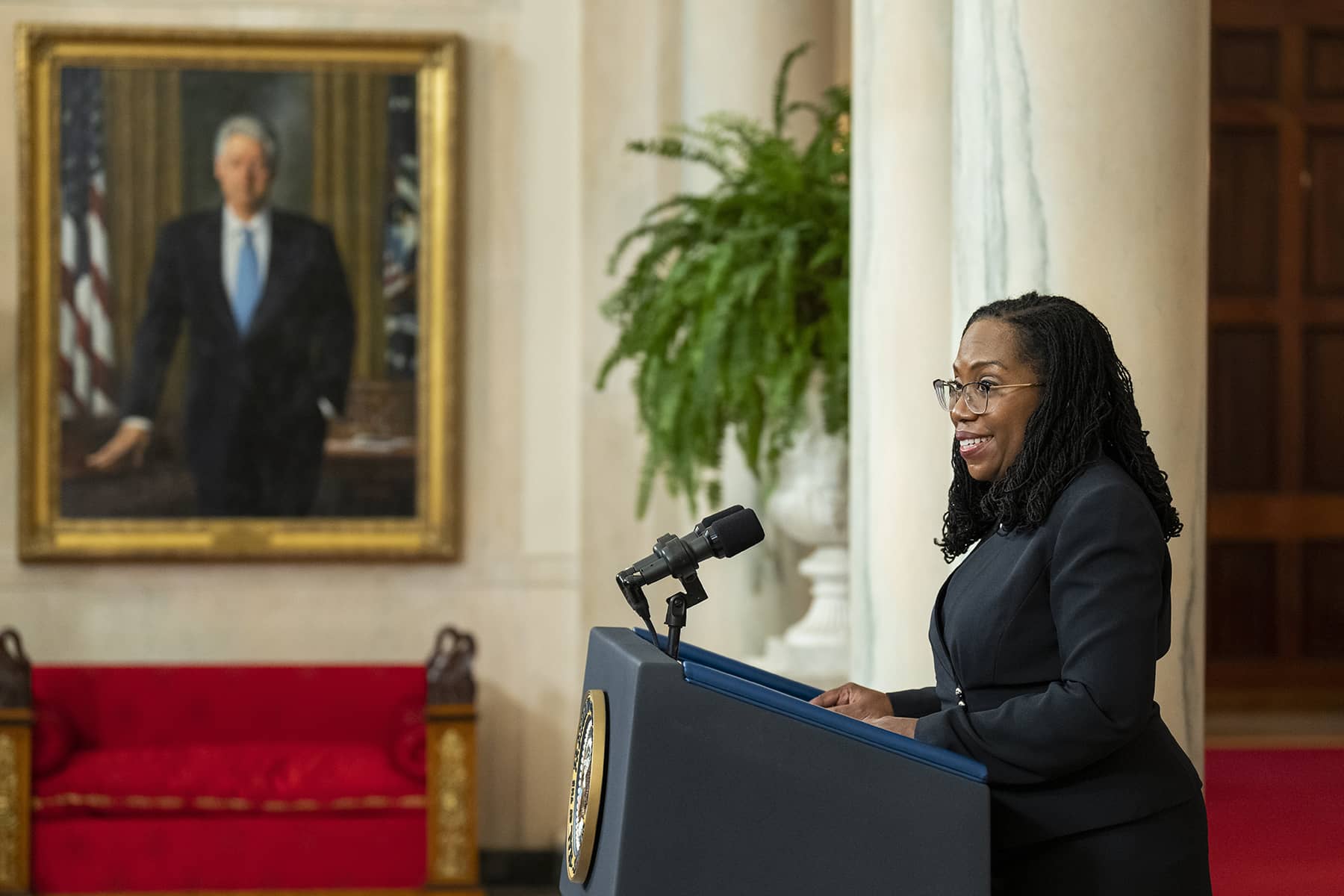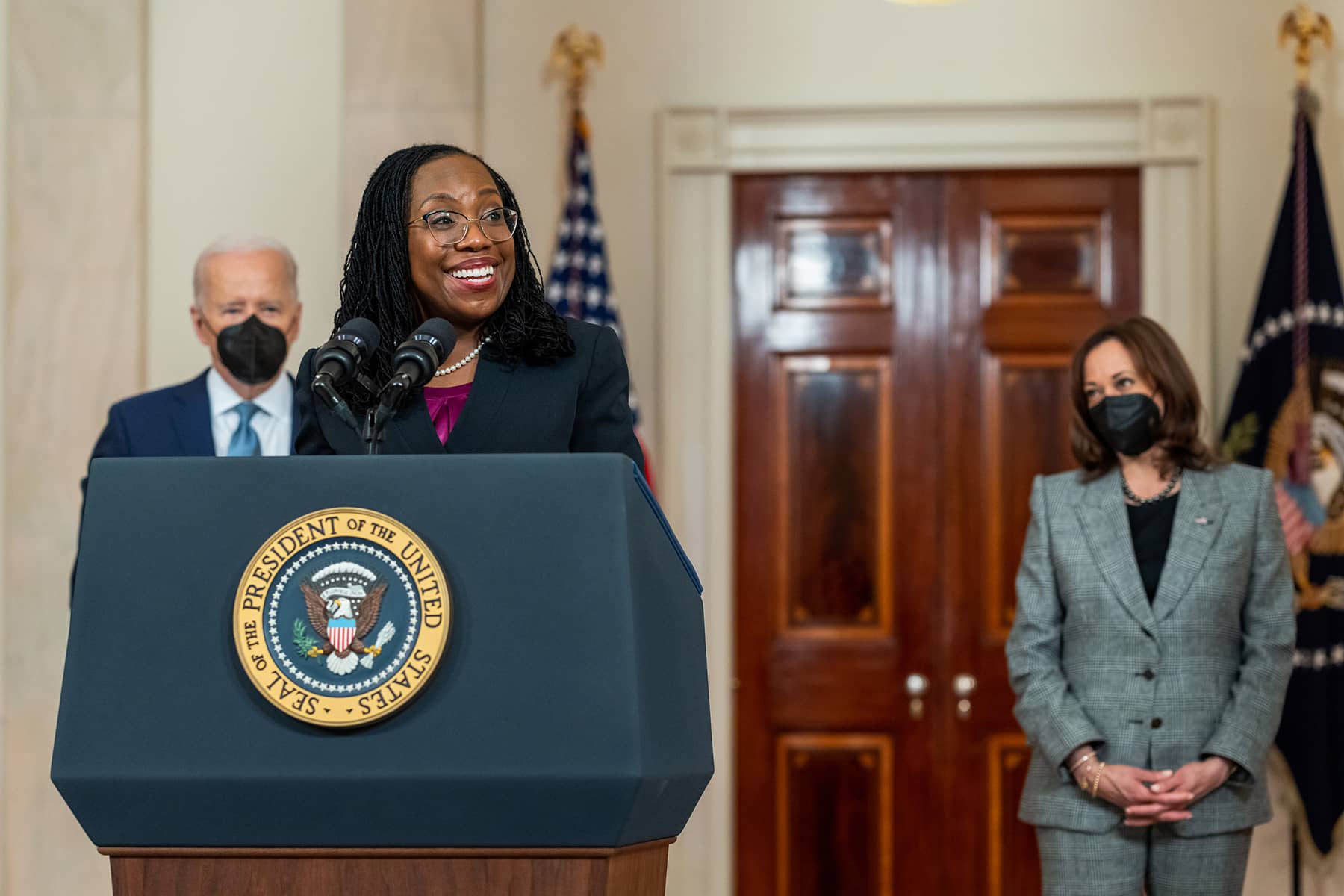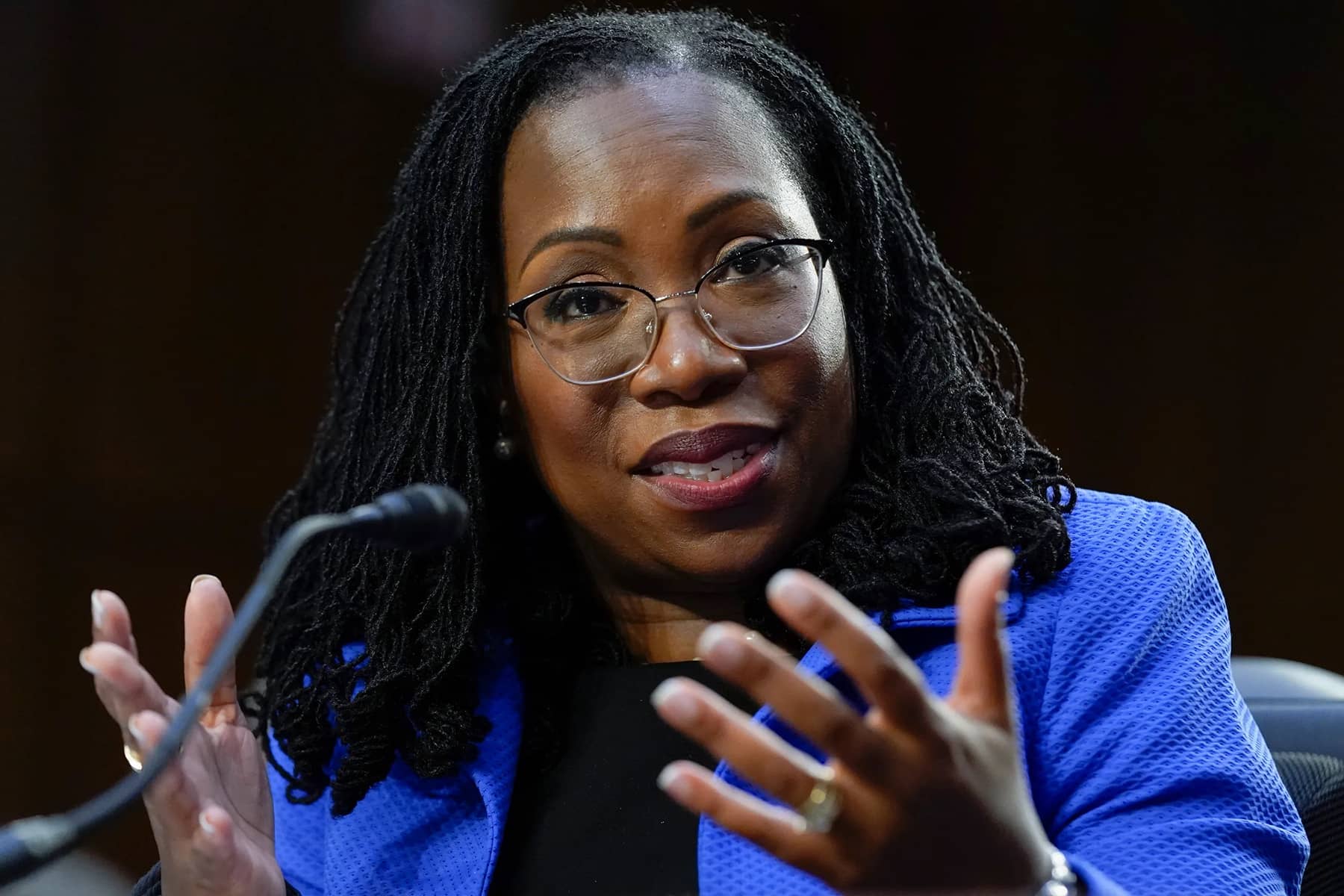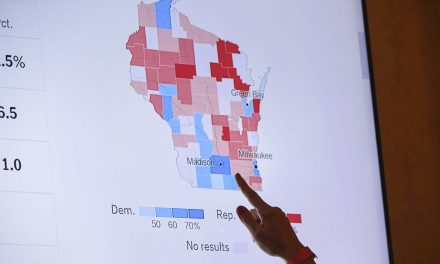
Judge Ketanji Brown Jackson was confirmed to become Supreme Court Justice Ketanji Brown Jackson on April 7. The Senate confirmed President Joe Biden’s nominee by a vote of 53 to 47, with three Republicans joining all 50 Democrats in favor of confirmation. The three Republicans voting yes were Senators Susan Collins (R-ME), Lisa Murkowski (R-AK), and Mitt Romney (R-UT).
Jackson’s elevation will not change the legal philosophy of the court. She will replace Justice Stephen Breyer, who was one of the three justices still on the court who do not adhere to the concept of “originalism,” which argues that the court must largely defer to state power rather than use the due process and equal protection clauses of the Fourteenth Amendment to protect civil rights within the states. Six of the current nine justices, including the three appointed by former president Donald Trump, favor originalism.
It is likely that Justice Jackson will largely write dissents as her colleagues dismantle the legal frameworks that have shaped modern America. The ones currently on the table are the rights to abortion, marriage across racial lines, birth control, and gay marriage, but it is not only civil rights that are at risk. So are business regulation and protections for workers and consumers, and a decision last night suggests that the current Supreme Court will not defer to states when right-wing principles are at stake.
By a 5 to 4 decision, the court last night limited the power of states to stop big development projects that state officials worry will hurt the state’s environment. It did so under the so-called “shadow docket,” a system, rarely used in the past but now a key part of the court’s decision-making process, in which the court hands down decisions on an emergency basis without briefings or written decisions, so we have no idea on what grounds they are making their ruling. The American Petroleum Institute, the Interstate National Gas Association of America, and the National Hydropower Association all applauded the decision.
Jackson brings to the court a stellar record as well as experience as a public defender. She is the first justice with this experience since Thurgood Marshall, the first Black justice, who left the court in 1991. Public defenders are a central part of our legal system, for if indeed everyone is equal before the law, it is crucial for everyone to have legal representation before the court. The Supreme Court itself recognized this principle in Gideon v. Wainwright (1963), although two current justices have suggested they would overturn it if given the opportunity.
Jackson’s diverse experience is vital to a Supreme Court that is a historical outlier in its uniformity of professional backgrounds. While she brings experience as a public defender to the court, there is no one on the court who has ever served in elective office.
Historically, presidents have always sought to have at least a few justices who understand politics because they have been part of the political system and thus understand that what they are doing in their chamber is very real life to those of us on the outside. Justice Sandra Day O’Connor, the first female justice, was the last justice on the court who had held elected office; she had served in the Arizona state senate. She left the court in 2006.
Justice Jackson, though, brings something brand new and vital to the U.S. Supreme Court. As Justice Marshall broke the Supreme Court’s color barrier, and Justice O’Connor broke the Supreme Court’s gender barrier, she is breaking her own barrier: She is the Supreme Court’s first Black female justice.
Justice Jackson’s perspective on the law and its effect on those of us who live here is crucially important. Also important, though, is that her elevation to the highest court in the land demonstrates the principle, however poorly we might honor it on occasion, that we are all equal before the law.
Vice President Kamala Harris, the nation’s first Black vice president, presided over the Senate chamber for the momentous vote. Farnoush Amiri and Lisa Mascaro of the Associated Press described what came next. Members of the Congressional Black Caucus had come to witness history; Black female lawmakers sat together along the back walls. The visitor galleries filled with young people, including Black women and men. Most of the senators were at their desks, although two Republican senators—Lindsey Graham of South Carolina and Jim Inhofe of Oklahoma—stayed in the cloakroom because they were not wearing ties, as Senate rules require.
Harris instructed the clerk to call the roll.
Voting moved quickly until it became clear that everyone had voted except Rand Paul (R-KY). As the Senate waited for him to show up, Harris gave Senators Rafael Warnock (D-GA) and Cory Booker (D-NJ) each a piece of vice-presidential stationery and asked the only two Black Democrats in the Senate to write a letter to a young Black woman to remember this day in history.
Then Paul cast his no vote from the cloakroom and the voting was over.
Jackson had won confirmation to the Supreme Court. When the final tally was announced, the Democrats broke out into applause and cheers. Murkowski joined them, while Romney applauded from across the aisle. Many Republicans had already left the chamber, but those remaining walked out during the applause. Romney remained alone on the Republican side, clapping.
The moment recalled another time of jubilation and hope, when lawmakers used their votes to declare all Americans equal before the law by passing the Thirteenth Amendment to the Constitution. They ended the system of legal enslavement in the United States, a system that had divided Americans into different castes and given some people the power to rule the rest.
The New York Times recorded the scene when the measure passed in January 1865: “Thereupon rose a general shout of applause. The members on the floor huzzaed in chorus with deafening and equally emphatic cheers of the throng in the galleries. The ladies in the dense assemblage waved their handkerchiefs, and again and again the applause was repeated, intermingled with clapping of hands and exclamations of ‘Hurrah for freedom,’ ‘Glory enough for one day.’ The audience were wildly excited, and the friends of the measure were jubilant. Never was a scene of such a joyous character before witnessed in the House of Representatives …”
Representative George W. Julian (R-IN) later remembered what it had been like to participate in that momentous day in 1865: “It seemed to me I had been born into a new life, and that the world was overflowing with beauty and joy, while I was inexpressibly thankful for the privilege of recording my name on so glorious a page of the nation’s history.”
After Jackson’s confirmation, Vice President Harris said: “I’m overjoyed, deeply moved…. There’s so much about what’s happening in the world now that is presenting some of the worst of this moment and human behaviors. And then we have a moment like this.”
Judge Jackson will be sworn in to her new role after Justice Breyer resigns in June. Until then, she will continue in her present position as a judge on the U.S. Court of Appeals for the District of Columbia Circuit.
Аndrеw Hаrnіk, Cаmеrоn Smіth, and Аdаm Schυltz / The White House
Letters from an Аmerican is a daily email newsletter written by Heather Cox Richardson, about the history behind today’s politics

















